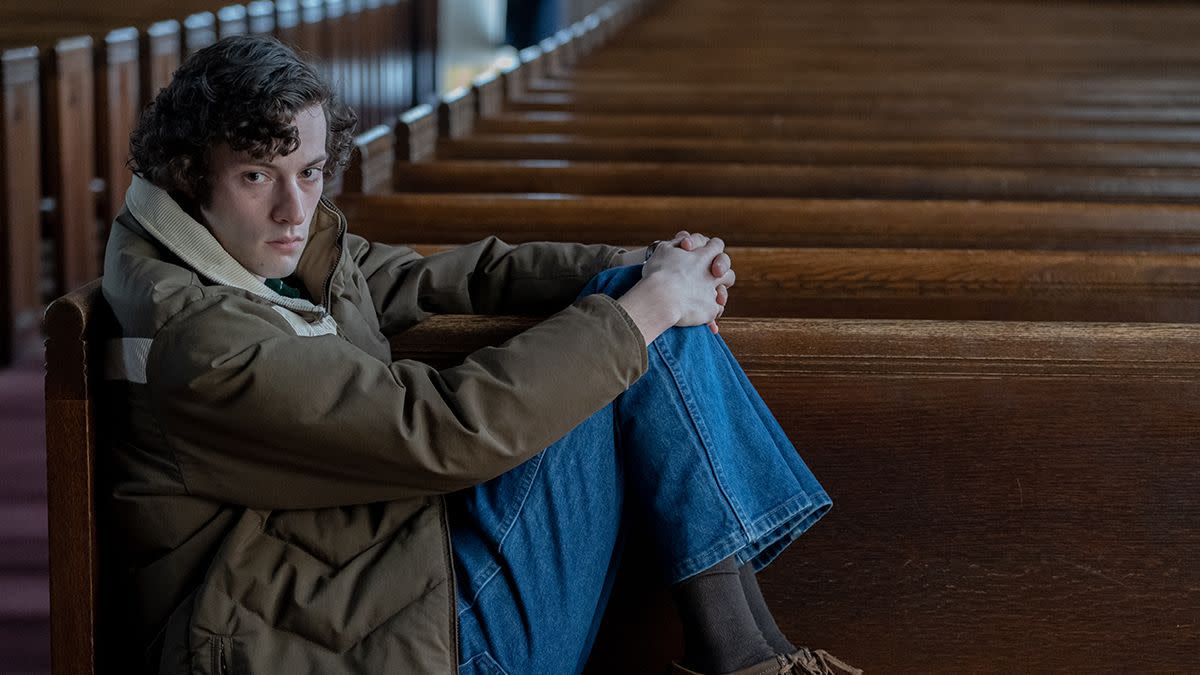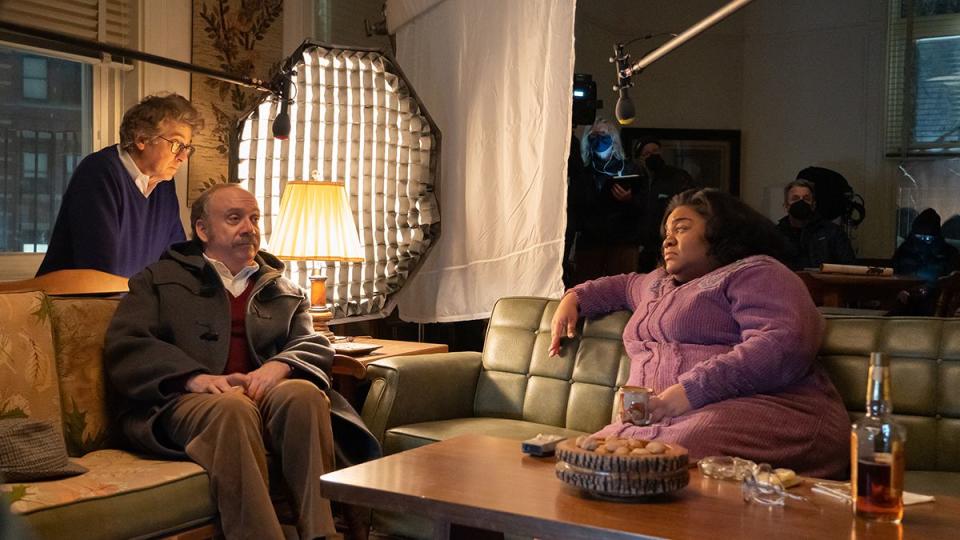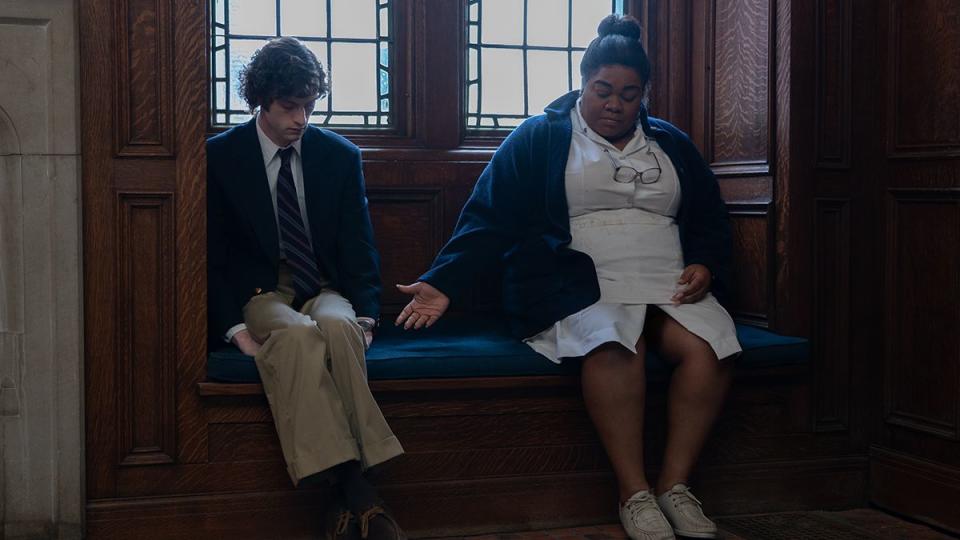How The Holdovers Star Dominic Sessa Got Discovered

When it came time to make The Holdovers, director Alexander Payne didn’t only film at some of New England’s most storied private schools, he also relied on them to find his stars.
Casting director Susan Shopmaker had seen hundreds of actors for the role of Angus Tully, the boarding-school student who’s left behind over 1970’s winter break and finds himself in a strange and delightful purgatory with a professor (Paul Giamatti) and the academy’s head cook (Da’Vine Joy Randolph), but Payne says, “we weren’t sure about any of them to play the lead.”
At the same time, Payne reached out to the schools where the movie was shooting—including Groton, Northfield Mount Herman, Deerfield, and St. Mark's—to offer the chance to try out for the film to their students. “When you're shooting in a school, it's good to include students there,” he explains. “It was nearing the end of the process, and we decided to activate that plan and call up the schools. Not all of them answered the phone, quite frankly, but Deerfield did, a lovely woman who's head of the drama department there, so Susan and her staff went out there and did a day of auditions without me and came back and said, ‘we think we have someone very interesting.”

Enter Dominic Sessa, a Deerfield student. “I just finished my fall play at my high school, and our head of school had a cast party at his house the following night,” he says. “He was talking about them filming a movie that took place at his old school, and he was saying that they were doing some location scouting at boarding schools in the area. I didn't really think much of it at that time, and then the next day, my director at the theater program at my school called me into her office and said, ‘there's a casting agency that's coming and coming around this area to audition for this role, in this feature film directed by Alexander Payne.’ And I was like, ‘yeah, I'll totally do that.’”
Payne says he auditioned Sessa—who’d never made a film before—five or six times before giving him the part. “It was interesting to see somebody just born to be a film actor,” the director says, adding that the charm didn’t wear off once the thrill of finding his star faded and filming actually began. “I was pleasantly surprised at how little direction I had to give him. He really just did it like a total pro from the get go, knew his dialogue backward and forward, would do as many takes as I wanted and do whatever I needed him to do. I asked him, ‘how is it that you're able to do something that I couldn't do, which is be natural and give a nice subtle performance when there's the camera and all the lights and all the technicians surrounding you, and he said, ‘I just don't think about all that stuff.’”

Which isn’t to say that Sessa found his first film entirely easy to make. “The biggest challenge for me working on a film for the first time would be the turnaround on notes,” he says. “I’ve done a lot of live theater—all I've done before are the shows at my school—and you know we have after-school rehearsals, and you receive your notes at the end and you can kind of… go back to your room and think about them.” When it came to making the film, however, “it's really a matter of coming in, knowing your lines… but not having the clarity that you might have in a theater setting. That was the hardest part for me of doing this for the first time was receiving a note, and then rolling. I think I've adjusted pretty well to it.”
Plenty of people seem to agree. In a review, the New York Times noted “ Sessa’s in his first movie, but he’s a natural. He can do that adolescent kind of perceptiveness. He can capture ‘rash,’ ‘na?ve’’ and ‘astutely attentive,’” and the Washington Post calls him “a star in the making… [who] delivers an alert, utterly grounded performance, holding his own with his far more experienced co-stars.”
Sessa chalks his success, to some degree, up to being able to see himself in his character. “I identify with Angus in a lot of ways,” he says. “ I go to what some people would consider to be an affluent boarding school, but I don't necessarily come from a very affluent family, so I definitely have a sense of slight alienation. Coming into a place like this, I felt a bit of an outcast in some ways. It resonates with me.”
But Payne thinks there’s more to it than that. “He's just born to do it,” he says. “He has a natural talent and has the skills that other people take Learning Annex classes for. He's able to do all that stuff and hold his own against Paul Giamatti. It’s no small feat.”
You Might Also Like
